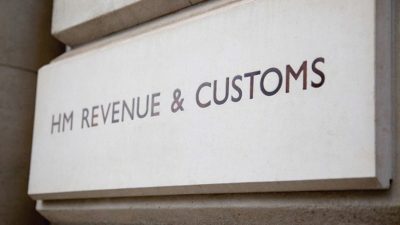 HM Revenue and Customs (HMRC) is waiving late filing and overdue payment penalties for Self-Assessment taxpayers for one month – giving them extra time, if they need it, to complete their 2020/21 tax return and pay any tax due.
HM Revenue and Customs (HMRC) is waiving late filing and overdue payment penalties for Self-Assessment taxpayers for one month – giving them extra time, if they need it, to complete their 2020/21 tax return and pay any tax due.
HMRC is encouraging taxpayers to file and pay on time if they can, as the department reveals that, of the 12.2 million taxpayers who need to submit their tax return by 31 January 2022, almost 6.5 million have already done so.
HMRC recognises the pressure faced this year by Self-Assessment taxpayers and their agents. COVID-19 is affecting the capacity of some agents and taxpayers to meet their obligations in time for the 31 January deadline. The penalty waivers give taxpayers who need it more time to complete and file their return online and pay the tax due without worrying about receiving a penalty.
The deadline to file and pay remains 31 January 2022. The penalty waivers will mean that:
- anyone who cannot file their return by the 31 January deadline will not receive a late filing penalty if they file online by 28 February, and
- anyone who cannot pay their Self-Assessment tax by the 31 January deadline will not receive an overdue payment penalty if they pay their tax in full, or set up a Time to Pay arrangement, by 1 April.
- Interest will be payable from 1 February, as usual, so it is still better to pay on time if possible.
Angela MacDonald, HMRC’s Deputy Chief Executive and Second Permanent Secretary, said:
“We know the pressures individuals and businesses are again facing this year, due to the impacts of COVID-19. Our decision to waive penalties for one month for Self-Assessment taxpayers will give them extra time to meet their obligations without worrying about receiving a penalty.”
Lucy Frazer, Financial Secretary to the Treasury, said: “We recognise that Omicron is putting people under pressure, so we are giving millions of people more breathing space to manage their tax affairs.
“Waiving late filing and payment penalties will help ease financial burdens and protect livelihoods as we navigate the months ahead.”
The existing Time to Pay service allows any individual or business who needs it the option to spread their tax payments over time. Self-Assessment taxpayers with up to £30,000 of tax debt can do this online once they have filed their return.
The 2020/21 tax return covers earnings and payments during the pandemic. Taxpayers would need to declare if they received any grants or payments from the COVID-19 support schemes up to 5 April 2021 on their Self-Assessment, as these are taxable, including:
- Self-Employment Income Support Scheme (SEISS)
- Coronavirus Job Retention Scheme (CJRS)
- Other COVID-19 grants and support payments such as self-isolation payments, local authority grants and those for the Eat Out to Help Out scheme
The £500 one-off payment for working households receiving tax credits should not be reported in Self-Assessment.



